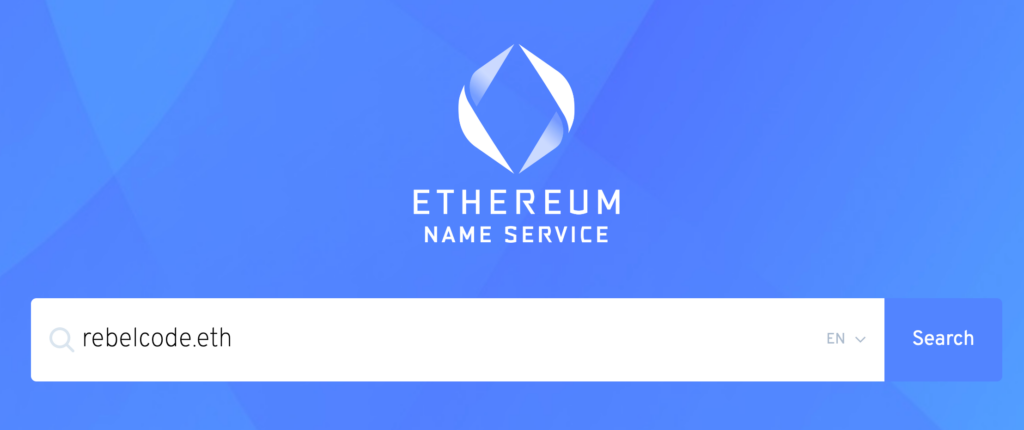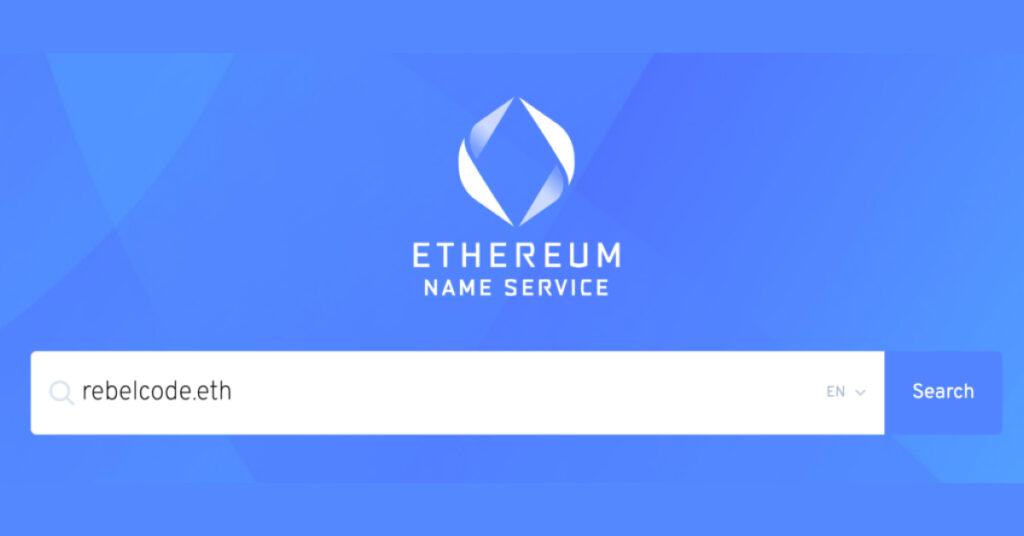One of our main focuses as a company has always been that of sharing and education, and we’re passionate about integrating systems. This is reflected in our products and services – WP Mayor, WP RSS Aggregator, and Spotlight.
We will therefore be sharing our Web3 journey with you, and we hope that you will, like us, understand that Web3 is the natural next step for the web and that now is the time to start learning and experimenting. So without further ado, here’s our first experiment.
As we mentioned in our previous post, Web3 is all about ownership.
But if there are digital assets that can be owned by us, we have to ask ourselves, who are we?
That’s where digital identities become a crucial part in this game.
Through Ethereum Name Service (ENS) domains, we now have decentralized digital identities.
An Ethereum Name Service (ENS) domain is equivalent to a DNS domain and offers a decentralized and secure way to translate human-memorable text into Ethereum (a few other blockchains are also supported) addresses. ENS domains currently end with .eth and have seven or more characters. They can be bought in an auction and can have hierarchical subdomains.
By registering our rebelcode.eth domain, we now have a digital identity. Of course, this is just a mapping of our ETH address to our human-readable .eth domain. But ENS domains handle much more than this simple mapping. You can integrate DNS domains as well as addresses from other blockchains such as Bitcoin.
If someone is sending us a digital asset or crypto currency, all they need to know is our ENS domain: rebelcode.eth.
Having an ENS domain makes it much easier for us in that we don’t need to remember or send complicated that are prone to transcription errors that can lead to funds being lost.
We can also change the address of our wallet for any reason at any time and we would only need to update this new address in our ENS.domains panel. Anyone we are interacting with will be oblivious to the change as our ENS domain will stay the same. Imagine not having to update credit card details every couple of years for every website you have a subscription with. Handy, no?
While ENS domains have been around for a while, usage has exploded in 2022.
april 2022 ENS stats:
— ens.eth (@ensdomains) May 2, 2022
– 163k new .eth registrations (total ~990k names)
– 2,660 ETH in fees (up 900 ETH from prev best month, Nov21)
– ~$7.8m in protocol revenue (all goes to the DAO)
– 38k new eth accounts w/ at least 1 ENS name (total 387k)
– >4,000 ETH in secondary on OpenSea pic.twitter.com/M9HIOsg8Bg
While most people purchase an ENS domain for their personal use, there are also many others that are investing in ENS domains, just like people invested in the .com domains in the mid to late nineties, sometimes with impressive long-term returns.
If you’re interested in buying multiple domains, we would recommend the following two tools:
- ENS Vision – an analytics tool that is very useful above all to domain investors
- ENS Tools – an advanced domain search tool that also allows bulk buying
What We Did
For the purposes of this experiment, our main focus was on spending time to understand how ENS works and why decentralized identities are important in Web3. We’ll link some good resources in the Action Steps section further down.
Once we had our understanding of ENS nailed, it was time to register our rebelcode.eth domains, which we did over at ENS.domains.
Sidenote: ENS domains are built on the Ethereum blockchain. Before you make any transactions on the Ethereum blockchain, you will need to set up a wallet (Metamask is a popular one) and buy some ETH (Coinbase and Kraken are two reputable exchanges). Once you have your ETH, you can send it from the exchange to your wallet and start the registration.

To register a domain, you will need to approve two transactions on the blockchain and pay a small amount of ETH in fees, so make sure you’ve got some ETH loaded up in your wallet previous to attempting registration.
Once you’ve got the domain registered, you can head over to the Details section and insert your ETH or BTC addresses to link them up with your ENS identity.
And that would be it, once you’ve registered and linked your ENS domain, you can now share it publicly and use it as your identity. If anyone needs to send you cryptocurrencies or digital assets (like NFTs) the sender only needs to know your ENS domain.
As a company, if at any point in the future we want to give the option to our team to be paid in crypto, we could have subdomains for them. They would then be able to manage their own mapping on that subdomain. So for an employee named John, john.rebelcode.eth would be all we need to know to send the monthly salary payment. If John decides to start receiving his salary at another ETH address at any point, he can just map that new address to john.rebelcode.eth, without our accounting department needing to make any changes on the company’s side.
We’ve just scratched the surface of what ENS domains can be used for, but we hope you found this experiment intriguing. If you’d like to go on this journey with us, feel free to reach out to us on Twitter @rebelcodeHQ.
Action Steps
- Look at the ENS documentation to understand how it works
- Register your ENS domain

